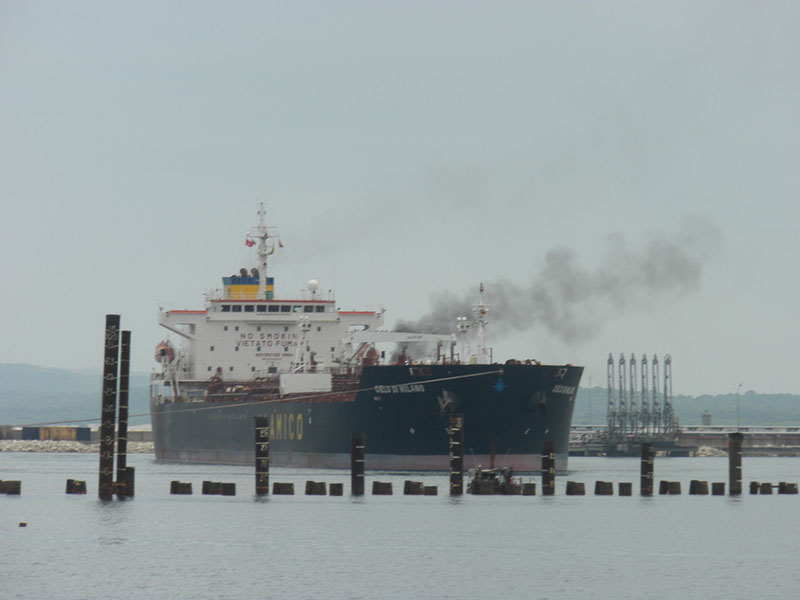Two senior engineering officers with an Italian shipping company admitted concealing deliberate discharges of oily waste at sea – the latest in so-called “magic pipe” prosecutions brought by U.S. officials.
Girolamo Curatolo, 50, of Custonaci, Sicily, chief engineer of the Cielo di Milano, a 577’x102’ oil/chemical tanker, pleaded guilty before U.S. District Judge Susan D. Wigenton in Newark, N.J., federal court to one count of conspiring to violate the Act to Prevent Pollution from Ships, according to Paul J. Fishman, the U.S. attorney for New Jersey.
Danilo Maimone, 31, of Furci Siculo, Sicily, the ship’s first assistant engineer, pleaded guilty to conspiring to obstruct justice, Fishman said. Federal prosecutors say the crew of the Cielo di Milano, which called at ports in New Jersey, Maryland and Florida, intentionally bypassed the ship’s required pollution prevention equipment, by discharging oily waste from the engine room through its sewage system into the ocean.
Dubbed the “magic pipe” by mariners and maritime law enforcers because they make oily waste “disappear,” such bypasses are highly illegal – but tempt operators to avoid the effort and expense of handling and documenting oil waste according to law.
According to a narrative from prosecutors, the Malta-flagged tanker owned by D’Amico Shipping Italia S.p.A. and managed by D’Amico Societa di Navigazione S.p.A., carried an oil record book – a required log regularly inspected by the Coast Guard – that Curatolo admitted he falsified, along with making false statements to Coast Guard inspectors on board the Cielo di Milano in January 2015.
Curatolo also instructed lower-level crew members to make false statements, and destroyed the vessel’s sounding log – the record of contents in storage tanks, including those containing oily waste – by ripping the pages out and burning it in the vessel’s boiler after the Coast Guard had boarded, prosecutors said.
First assistant engineer Maimone admitted concealing the discharge of oily waste as well as causing a false oil record book to be presented to the Coast Guard during its inspection of the vessel. He admitted to making false statements, and instructing lower-level crew members to make false statements during the January 2015 inspection.
Curatolo and Maimone could face up to five years in prison, and a maximum fine of $250,000 or twice the gross gain or loss resulting from the offenses, when they are sentenced in November.
The investigation was conducted by special agents with the Coast Guard Investigative Service, directed by Special Agent in Charge Richard D. Cox.
Intentional dumping of oily waste in U.S. waters has been estimated to be as much as 88 million gals. annually, much of it from international shipping. The online Marine Defenders Project has web-based and mobile applications to encourage professional mariners and others to report oil spills in real time with geospatial mapping.
The project is supported by the State University of New York Maritime College, the National Fish and Wildlife Foundation and American Littoral Society. It sends on reports to the Coast Guard, and in some cases has brought rewards to people who report pollution incidents.
In one 2014 case in Baltimore, Hachiuma Steamship Co. Ltd., Kobe, Japan, pleaded guilty to illegal disposal of oil residue and bilge water from its 656'x106' ro/ro car carrier Selene Leader. Out of a $1.8 million penalty, $250,000 went to a tipster on board the ship who alerted the Coast Guard and took video of the dumping. Another $450,000 went to the National Fish and Wildlife Foundation to fund environmental restoration projects on Chesapeake Bay.





